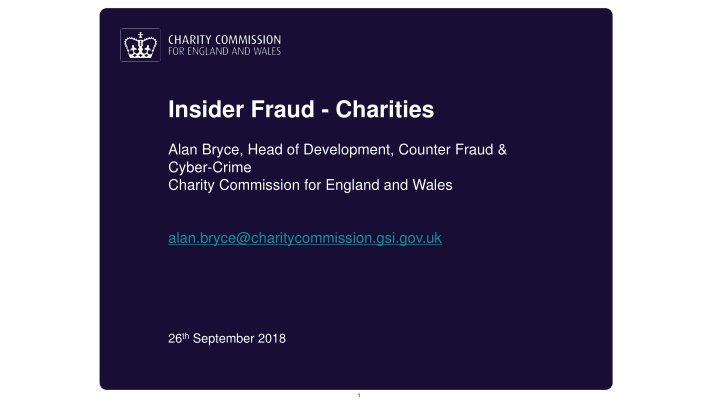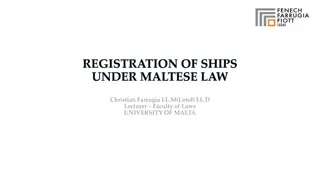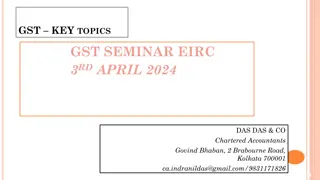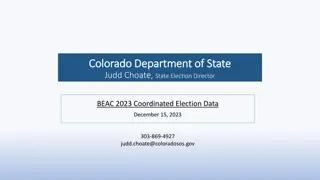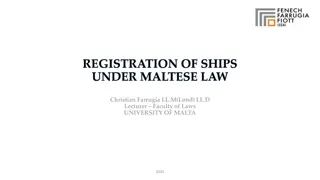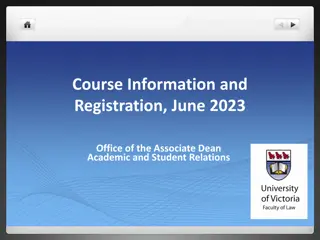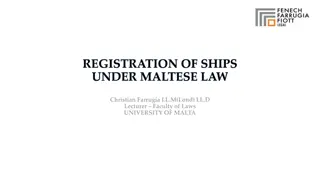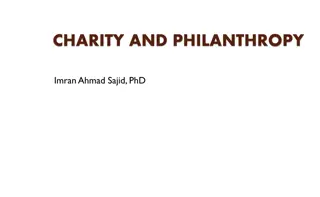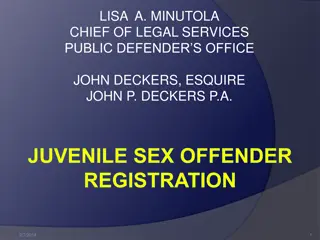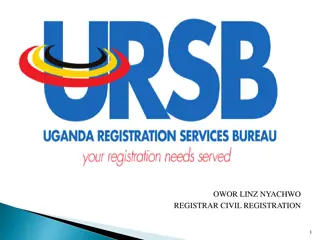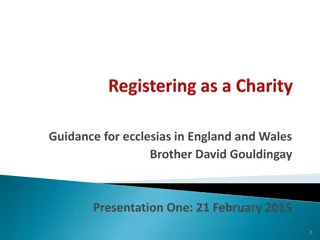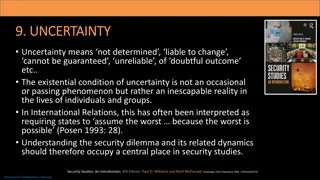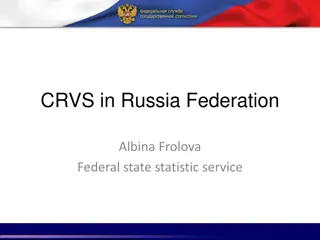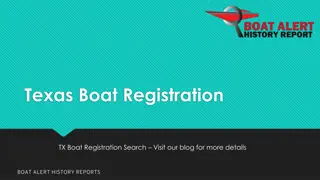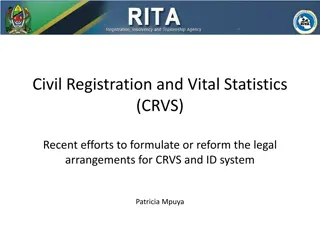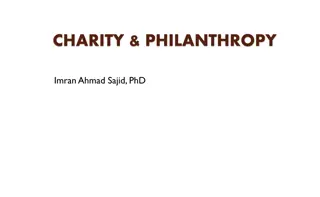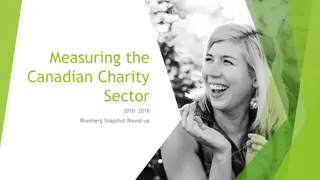Ecclesias' Charity Law and Registration Dilemma
The presentation discusses the charitable status of ecclesias, exploring whether registration as a charity is mandatory or optional. It highlights the diverse circumstances faced by different ecclesias and the implications of compliance or non-compliance with Charity Law. The complexities of self-governance, registration requirements, and ongoing obligations are examined, emphasizing the varying approaches taken by ecclesias towards charitable status.
Uploaded on Feb 15, 2025 | 0 Views
Download Presentation

Please find below an Image/Link to download the presentation.
The content on the website is provided AS IS for your information and personal use only. It may not be sold, licensed, or shared on other websites without obtaining consent from the author.If you encounter any issues during the download, it is possible that the publisher has removed the file from their server.
You are allowed to download the files provided on this website for personal or commercial use, subject to the condition that they are used lawfully. All files are the property of their respective owners.
The content on the website is provided AS IS for your information and personal use only. It may not be sold, licensed, or shared on other websites without obtaining consent from the author.
E N D
Presentation Transcript
Insider Fraud - Charities Alan Bryce, Head of Development, Counter Fraud & Cyber-Crime Charity Commission for England and Wales alan.bryce@charitycommission.gsi.gov.uk 26th September 2018 1
AGENDA : An overview of the charity sector counter fraud environment Insider charity fraud new research 2018 Questions
Charity sector Approx. 170,000 regulated charities in England & Wales, vast majority are small/medium size 75 billion per annum income, 750,000 trustees, several million employees and volunteers 5 counter fraud managers across entire sector, about 50 counter fraud specialists No evidence to suggest charities are more or less at risk of fraud than private or public sector BUT 4
What do the following have in common: 1.3 billion (2011) 1.1 billion (2012) 147 million (2013) 1.9 billion (2016) 2.3 billion (2017)
National Crime Agency (2015) stated: ..individuals, the private sector and the charity sector lose billions of pounds each year to fraud.
Scale of insider fraud in charities? Approximately a third of a non-representative sample of frauds reported to the Commission in 2016 were internal Anecdotally, some charities suggest over 90% of frauds are internal 4
CHARITY FRAUDS some themes & myths I have heard Excessive trust Lack of challenge Not possible to put in place all the controls required to prevent fraud Absence of oversight/ segregation of duties Themes Fraudsters would not target charities Reluctance to recognise/treat fraud as fraud Myths? People who work in charities or volunteer would not commit fraud
Insider charity fraud 2018 research Published April 2018 Phase 1 review sample of frauds reported to us directly or information suggests increased fraud risk Key finding - 19 out of 20 charity cases the absence of appropriate controls was primary enabling factor 2 Phase approach Phase 2 Combination of call for evidence AND Direct interviews with charities, professional representative organisations (identify good practice) 54 respondents unexpected results?
Phase 2 Who committed insider fraud 43% by an employee 33% by trustee 10% by volunteer 10% other 4% did not answer this question
Phase 2 Factor that contributed to fraud occurring; 43% excessive trust or responsibility placed on one individual 24% due to lack of challenge or oversight 24% either absence of controls or existing controls poorly applied 5% combination of factors 4% did not answer this question
Phase 2 Action taken/ reporting 38% recovered part or all of money/assets taken 81% undertook review of adequacy of controls 62% reported to Action Fraud/police 57% reported to Charity Commission 19% of frauds reported to authorities resulted in prosecution
Some initial conclusions (Phase 1) Ensure counter fraud controls both in place and consistently/robustly applied (Phase 2) majority of frauds enabled due to either excessive trust/responsibility placed on one individual or lack of challenge/oversight 4
Some recent examples 30k fraud by Chair of PTA, no financial controls (sentence 2 years) 6.7k Charity admin officer (former volunteer), personal debt motive, son raised concern (suspended sentence) 4
Looking to the future Survey of charities on counter fraud (early 2019) joint Charity Commission/Fraud Advisory Panel research Fraud research 2019 2 to 3 meetings per year, over 40 charities/professional bodies/stakeholders represented Charity Against Fraud group National charity fraud awareness week Starting October 22nd 2018 Second national Charity Fraud Awards 2018 Webinars (2017 and 2018) Commission guidance Protect your charity against fraud webpage CC8 (internal control) review and consultation
